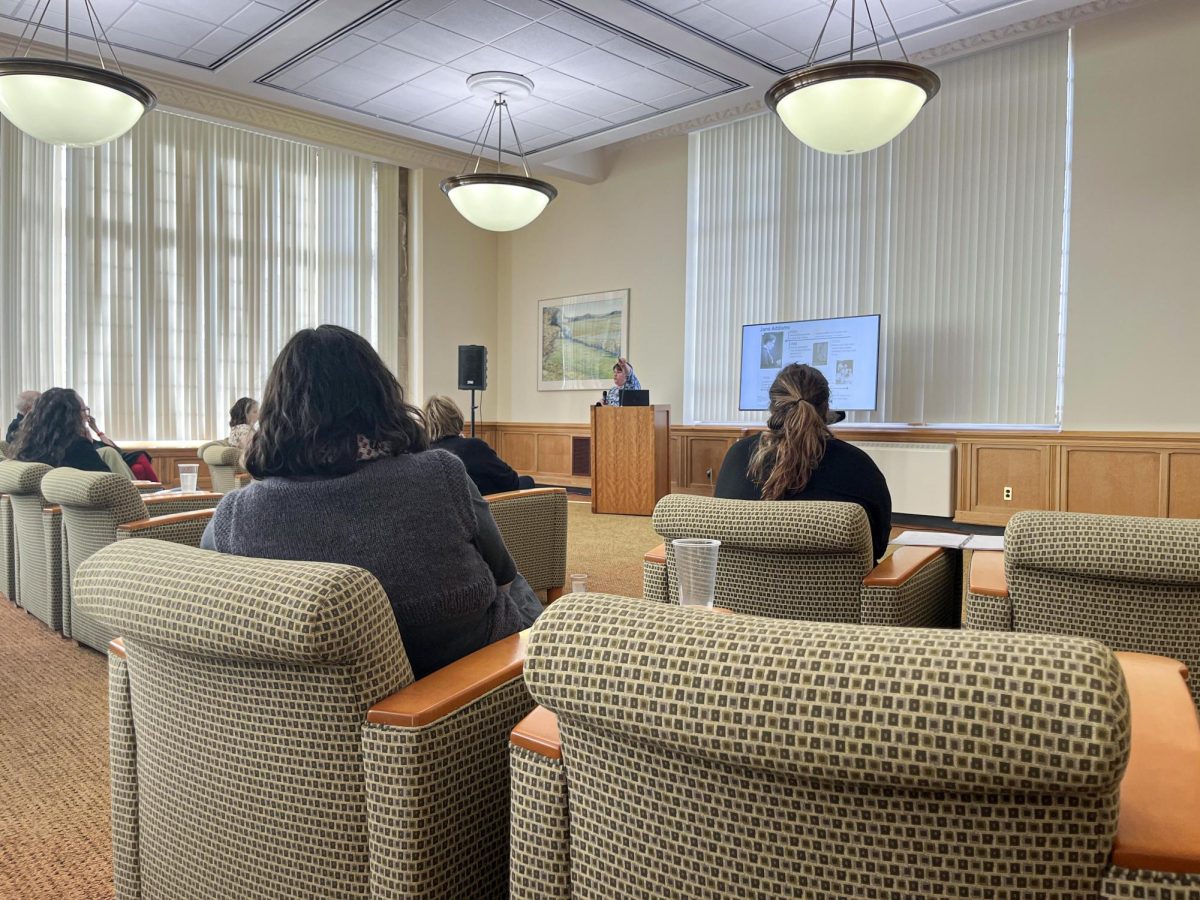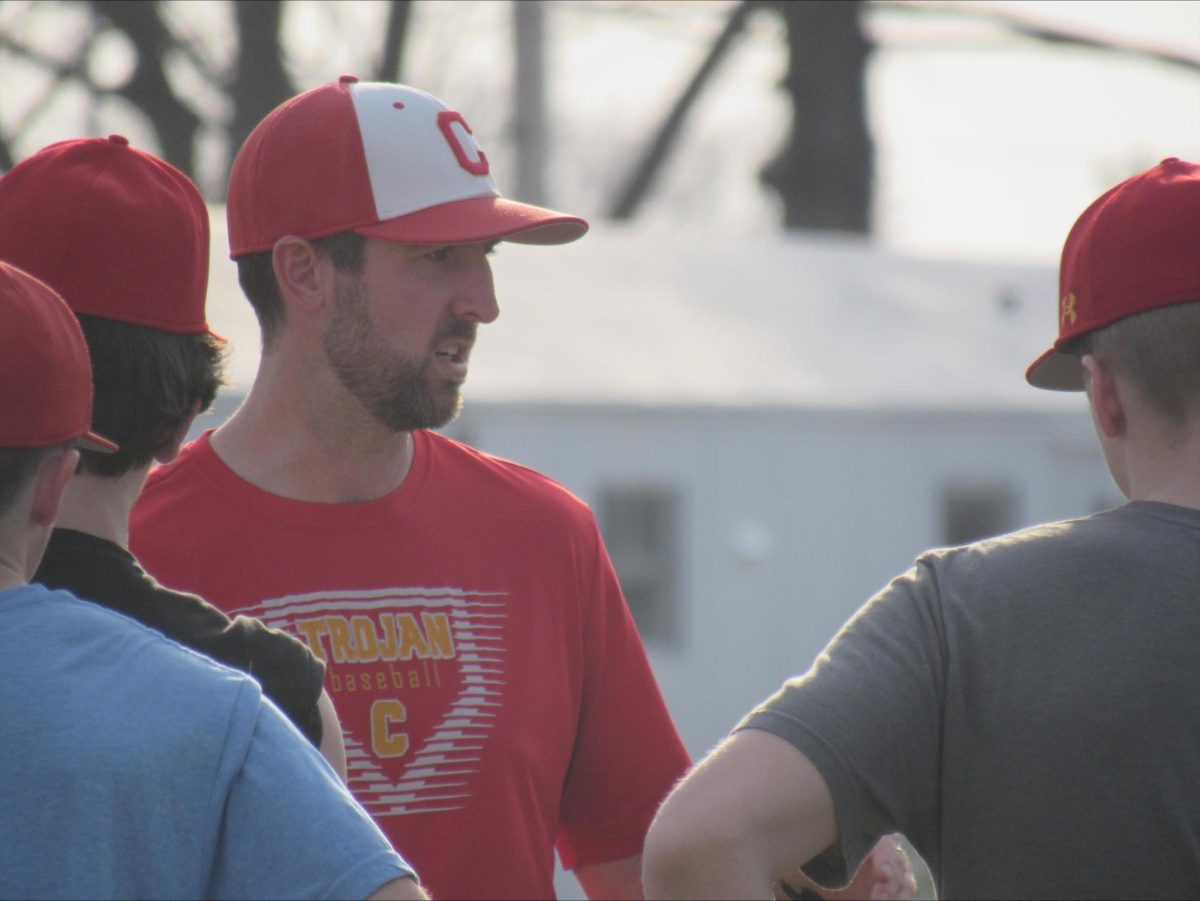COLUMN: In defense of Coldplay’s early material
March 11, 2022
Yeah, Coldplay is titling songs with emojis and have collaborated with the Chainsmokers, but damn is there a case to be made for their first four records.
Their debut, “Parachutes,” gave the world “Yellow,” but also the much-less heralded “Don’t Panic,” an understated introduction to the first album by a band who would become the biggest in the world.
Then there was “A Rush of Blood to the Head,” an album with possibly the most Coldplay hits. “In My Place,” “The Scientist” and “Clocks” all steal the show on the sophomore release. My eyes were first opened to this record while browsing my dad’s CD collection and it was my first experience with a Coldplay album. Not to say I hadn’t listened to them, I just wasn’t at a point where I really cared about albums yet.
I’ve never really listened much to “X&Y,” but everyone appreciates “Fix You,” and I also like the U2-indebted “Talk.” “Speed of Sound” is another great track.
The ending of “Fix You” is one of the clearest examples of Coldplay absolutely mastering the arena rock sound. It’s a loud, melodic and sad singalong that is built for waving lights.
Next comes Coldplay’s “The Joshua Tree,” their fourth record “Viva La Vida or Death and All His Friends.” This might take the cake as one of my favorite Coldplay albums. They got a little weird with this one, all while maintaining their pop sensibilities.
The song “Viva La Vida” competed with “Mr. Brightside” for years as the song I’d play most. For a while, the only two CDs I really owned were this record and the Killers’ “Hot Fuss.” While my taste has certainly matured beyond these two bands, both of which make up half of Pop Rock Mount Rushmore, it’s still fun to return to both bands’ best records.
“Violet Hill” has what I thought was the greatest guitar solo of all time for a while and “Lovers in Japan” has a certain beauty to me that has meant and will mean a lot to me for a long time.
It’s obvious Coldplay took their influence from arena rock giants U2 and Radiohead, and similar to U2, watched their career decline into a confusing pop mess. Which is also unlike Radiohead, who have flourished and continued to experiment with new sounds, only getting more unique.
The days of working with Brian Eno and idolizing U2 and Radiohead might be over, but Coldplay left listeners with a handful of songs that will stand the test of time, and some that will remain underrated staples.
Ryan Meyer is a senior journalism major. He can be reached at rameyer@eiu.edu or at 581-2812.









![[Thumbnail Edition] Eastern Illinois University baseball's hitting coach and recruiting coordinator Mike Pugliese urges players on the team to increase their effort after a slow start to its pregame routine at the team's first intrasquad scrimmage of the season at O'Brien Field on Jan. 31, 2025.](https://www.dailyeasternnews.com/wp-content/uploads/2025/03/BB_02_O-1-e1741909628540-1200x702.jpg)
![[Thumbnail Edition] Senior tennis player Luisa Renovales Salazar hits the tennis ball with her racket at the Darling Courts at the Eastern Illinois University campus in Charleston, ILL.](https://www.dailyeasternnews.com/wp-content/uploads/2025/03/Tennis_01_O-1-e1741807434552-1200x670.jpg)
![[Thumbnail Edition] Senior right-handed pitcher Tyler Conklin pitching in the Eastern Illinois University baseball team's intrasquad scrimmage at O'Brien Field in Charleston, Illinois on Jan. 31.](https://www.dailyeasternnews.com/wp-content/uploads/2025/03/TC_01_O-e1741567955534-1200x669.jpg)





![[Thumbnail Edition] Senior, forward Macy McGlone finds an open teammate to pass the ball too during the game against the Tennessee State Tigers 69-49, in Groniger Arena on the Eastern Illinois University campus, Charleston Ill.](https://www.dailyeasternnews.com/wp-content/uploads/2025/03/WBB_02_O-1-e1741228987440-1200x692.jpg)


















![E[Thumbnail Edition] Eastern Illinois softball freshman utility player Abbi Hatton deciding to throw the softball to home plate in a fielding drill during softball practice at the field house in Groniger arena on Tuesday Feb. 11.](https://www.dailyeasternnews.com/wp-content/uploads/2025/03/SB_03_O-e1741208880750-1-e1741209739187-1200x815.jpg)















![The Weeklings lead guitarist John Merjave [Left] and guitarist Bob Burger [Right] perform "I Am the Walrus" at The Weeklings Beatles Bash concert in the Dvorak Concert Hall on Saturday.](https://www.dailyeasternnews.com/wp-content/uploads/2025/03/WL_01_O-1200x900.jpg)
![The team listens as its captain Patience Cox [Number 25] lectures to them about what's appropriate to talk about through practice during "The Wolves" on Thursday, March 6, in the Black Box Theatre in the Doudna Fine Arts Center in Charleston, Ill.](https://www.dailyeasternnews.com/wp-content/uploads/2025/03/WolvesPre-12-1200x800.jpg)





















